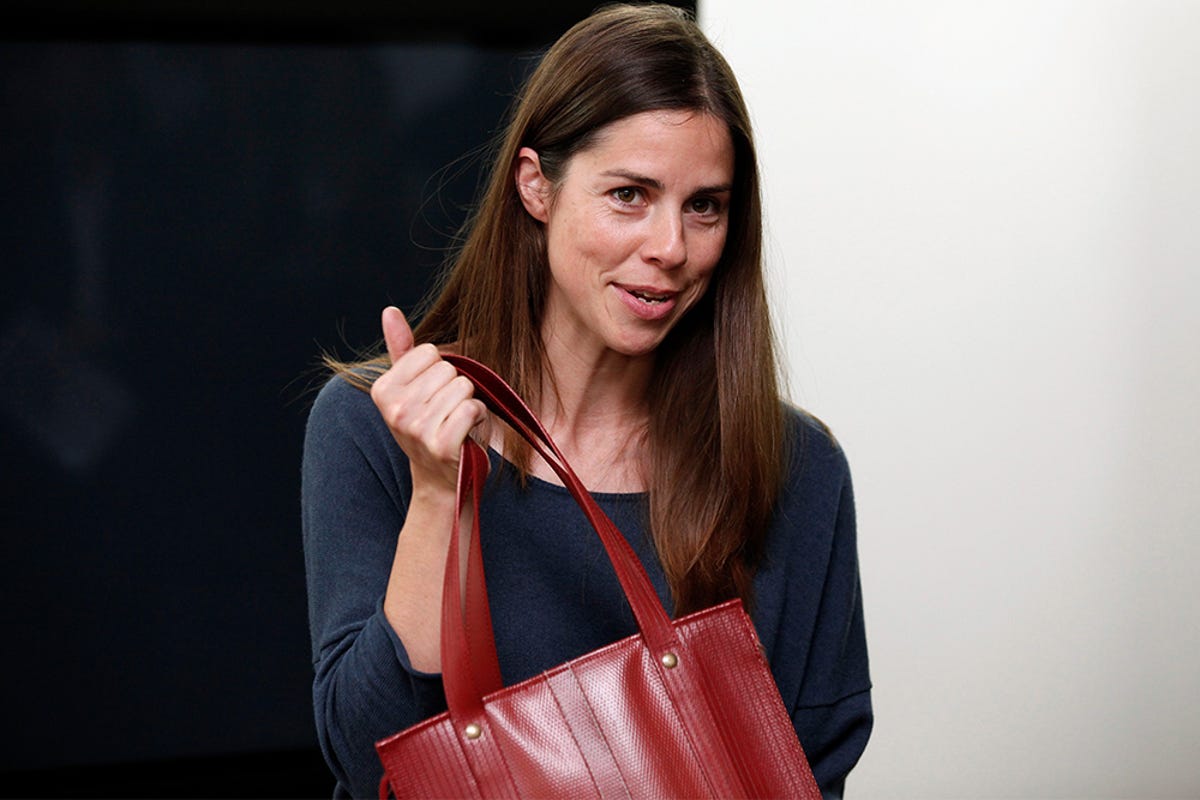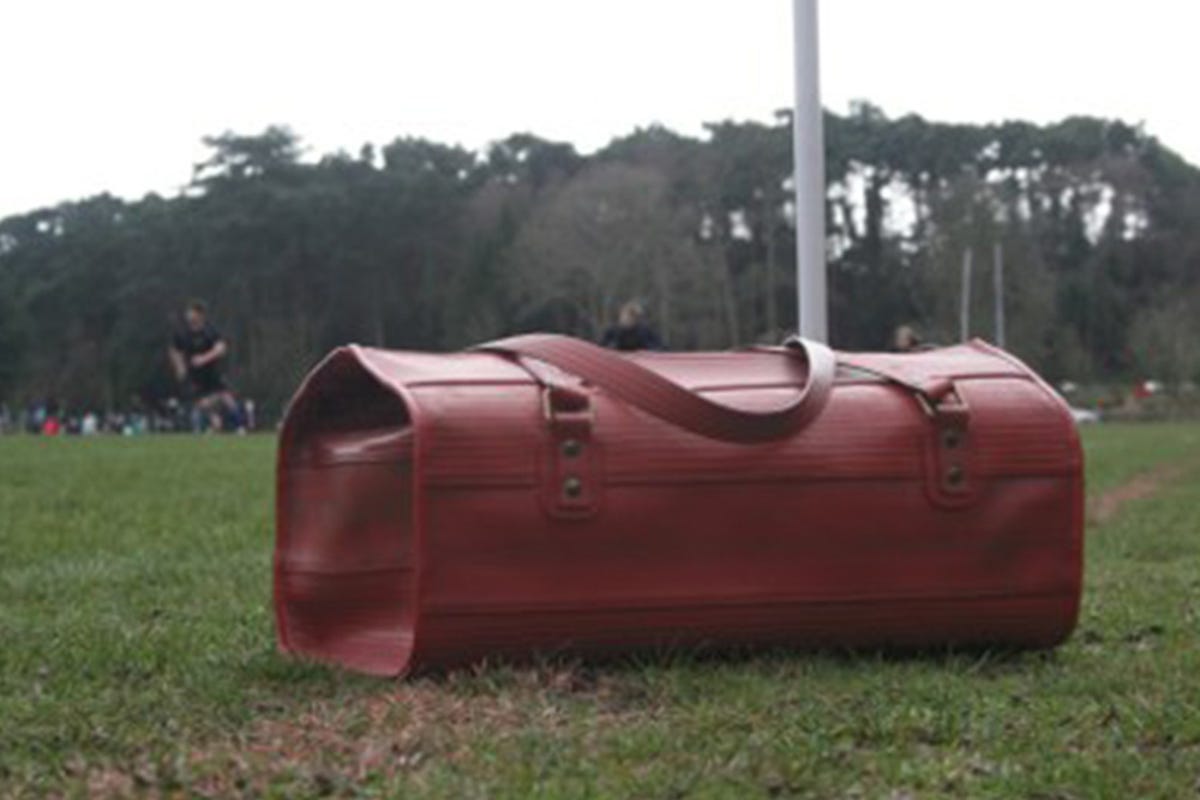Fellow Portrait
Kresse Wesling
Elvis & Kresse
.jpg?&quality=80&auto=webp&width=1000)
Elvis & Kresse converts industrial and commercial waste such as decommissioned fire hoses into luxury goods and accessories.
Europe
UNITED KINGDOM
FELLOW
2011 Fellow | 2025 Impact Awardee
Updated April 2025
Kresse Wesling has a rather extraordinary passion: “I’ve been interested in waste for years! I want to add value to waste, build value into it, and prove that it shouldn’t exist,” she says. The result is a company she co-founded to make luxury goods from waste.
Yes, that’s right: luxury from waste.
The adventure started on an auditing course she attended in 2005 to learn more about ISO 14001, the environmental management standard, where she met members of the London Fire Brigade. They told her about their disused fire hoses, which cannot be traditionally recycled. “I asked to see some and they took me to their fire hose assessment site. There were coils and coils of it, piled on the rooftop. It was beautiful.”
.jpg?&quality=80&auto=webp&width=1200)
Passion translates to action
Some might be hard-pressed to see how old hose could be beautiful, but this is exactly what makes Kresse’s passion extraordinary: her vision. “When you polish it and see the lustrous red rubber it becomes this fantastic material!”
Kresse and her partner, Elvis, set about figuring out what they could make from it. “If a use couldn’t be found for the hose, all of it would go to landfill, which to me is simply uncivilized. Waste is a mix of inherently valuable materials. It’s shameful to shove it in the earth.”
A lengthy process of trial and error ensued, as they made the hose into roof tiles, furniture, Christmas ornaments… and finally belts. “Elvis’s leather belt split so we cut off a bit of hose, added his buckle, and hey presto!” It wasn’t quite as easy as that, of course. More work was required to find machines sturdy enough to cut, rivet and sew the rubber, which is as tough as nails, let alone to clean the sooty grime off it. “We’re always in uncharted territory, so we have to innovate!” Kresse enthuses.
“Sustainable luxury is a real possibility nowadays. People aren’t just buying green because it’s green anymore. They want design and craftsmanship too.”
.jpg?&quality=80&auto=webp&width=1200)
Impact-first design
Fourteen years on from joining the Cartier Women’s Initiative in 2011, Elvis & Kresse has gone from strength to strength. Its product range has expanded to encompass bags of all sizes, notebooks, key rings and more. A partnership with Burberry led to a new product range using the British fashion house’s waste leather. Swathes of favorable press coverage and high-profile partnerships have helped earn the brand a legion of loyal customers.
Sales are not the main way Kresse measures success, however. As one of the founding B Corps in the United Kingdom, Elvis & Kresse was built for positive impact, building profit from purpose.
Kresse explains, “We serve our entire ecosystem. We serve every stakeholder within that, from the people who use our belts to hold up their jeans, to our charity partners, to the 35 apprentices we have trained. Growth is much less important to me than impact.”
She continues, “Our business has rescue and giving built in — these aren't add-ons, they are the core of what we do.”
So far, Elvis & Kresse has rescued over 315 tons of waste from landfill. It also donates 50% of its profits to charity, with over $500,000 disbursed so far. It has a portfolio of charity partners linked to the different waste materials it repurposes. For example, through its partnership with The Firefighters Charity, the business has covered the cost of over 29,000 therapy sessions for firefighters.
.jpg?&quality=80&auto=webp&width=1200)
A business with nature at its heart
Kresse grew up in Canada, where she developed a need to be in contact with nature, but at the age of 17, went off to study the International Baccalaureate in Hong Kong. “It was seminal. Had I stayed in Canada, I wouldn’t have seen the scale of destruction that can exist in the world. In Hong Kong, they don’t hide their waste, they pump it into the sea.”
She returned there to work in venture capital after university and went on to start up two ventures in the environmental waste management sector, before moving to the UK.
But how did someone who needs to be in contact with nature manage in Hong Kong? “I had a blow-up kayak!” she says. “There is always wilderness and nature somewhere!"
.jpg?&quality=80&auto=webp&width=1200)
.jpg?&quality=80&auto=webp&width=1200)





.jpg?&quality=80&auto=webp&width=1200)